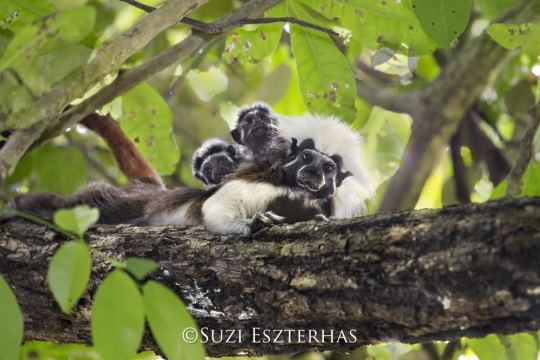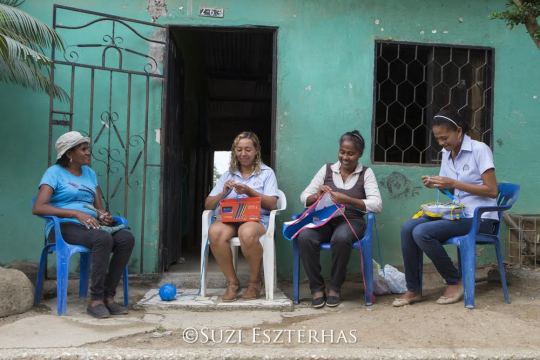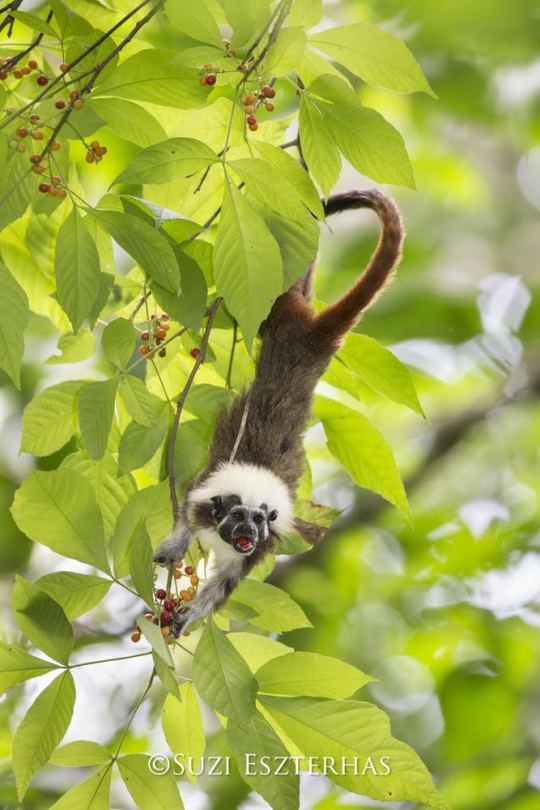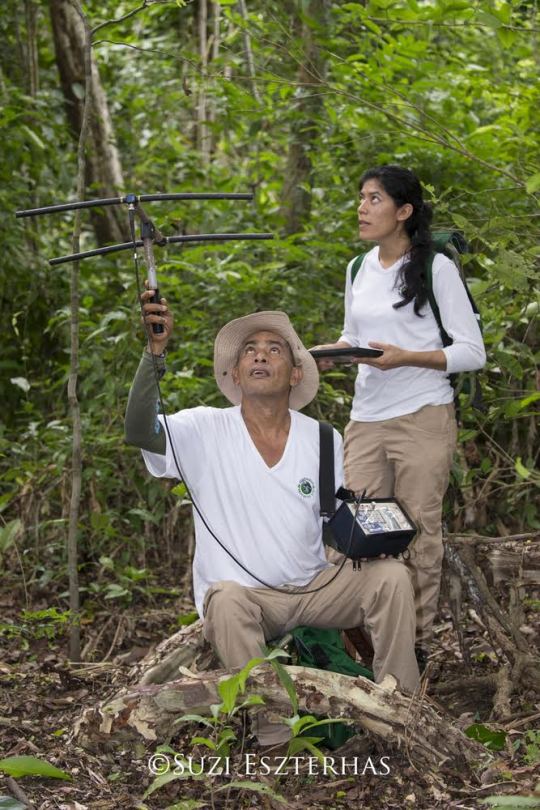Adventures with the Colombian Cotton-Top Tamarins

Suzi recently traveled to the rainforests of Colombia to photograph cotton-top tamarins. Comically cute and diminutive primates, the tamarins live in small areas of preserved tropical forest. In Spanish they’re known as mono tití cabeciblanco, or “little monkey with the white head”; Titi for short. Tamarin populations were decimated in the 1970’s when 20,000 - 40,000 were rounded up in large numbers for biomedical research, and now, due to deforestation for agriculture, fuel and housing, they remain critically endangered.
Suzi’s special mission was to locate and photograph baby tamarins who, because of their size, (1.5 - 1.75 ounces at birth), and the protective nature of the adults, are difficult to capture with a camera. Adult tamarins only grow to be about the size of a squirrel, weighing in at about 400 grams (less than one pound).

Suzi’s efforts were supported by a wonderful organization known as Proyecto Titi, as well as the Wildlife Conservation Network (one of the main funders of Projecto Titi). The Project is a conservation program that combines field research, education initiatives and community programs to make the conservation of natural resources economically feasible for local communities in Colombia. For decades Proyecto Titi has not only helped inform the public about the tamarin’s plight, it has brought money in to the local economy through their community-based projects. Both the Executive Director, Rosamira Guillen, who joined the organization after being the Director of a zoo in northwest Colombia, and the Project’s founder, Dr. Anne Savage, believe that developing effective long-term conservation programs requires a multidisciplinary approach. The Project achieves that by combining field research, assessment of habitats and community programs that involve local people. Their goal is to use the cotton-top tamarin as the flagship species for the conservation of Colombia’s natural resources.

Cotton-top tamarins are social animals who live in tight-knit matriarchal family groups and spend a lot of their time high up in the trees. They have a unique cooperative breeding system where males, and other group members, play a major role in caring for the young by carrying the babies on their backs, grooming and playing with them, and protecting them from danger. Only one female in the group breeds and typically gives birth to twins who, tiny and virtually helpless, need a lot of care if they are going to survive.
Tamarins use a fascinatingly complex system of chirps and whistles to communicate with one another and produce over 38 different vocalizations to “speak” to their family group, defend their territory from neighboring family groups, talk about food, and more. Their communication is so sophisticated that Ted-Ed was inspired to collaborate with Proyecto Titi to create this animated video lesson about their unique “language”.

Proyecto Titi has fitted one of the tamarins in each family group they study with a small radio transmitter that allows them to track the animals over long distances and periods of time. Suzi worked with the project’s field research team, Francy Forero and Felix Mendina, who took her into the forest in search of tamarins.

Also on the team was Becky Cliffe, world renowned sloth expert and all around jungle adventurer, who came along to assist Suzi in the field. Savvy enough to recognize new people, the cotton-tops immediately knew that Suzi was a stranger and not one of the familiar researchers they are used to seeing. This made them a bit frightened and shy at first and also meant they took their babies higher into the treetops for safety. After a few days though, the tamarins relaxed and Suzi was able to capture a lot of compelling images of these adorable primates.

To see more of Suzi’s cotton-topped tamarin images, click here.
- Suzi Eszterhas
Comments 0